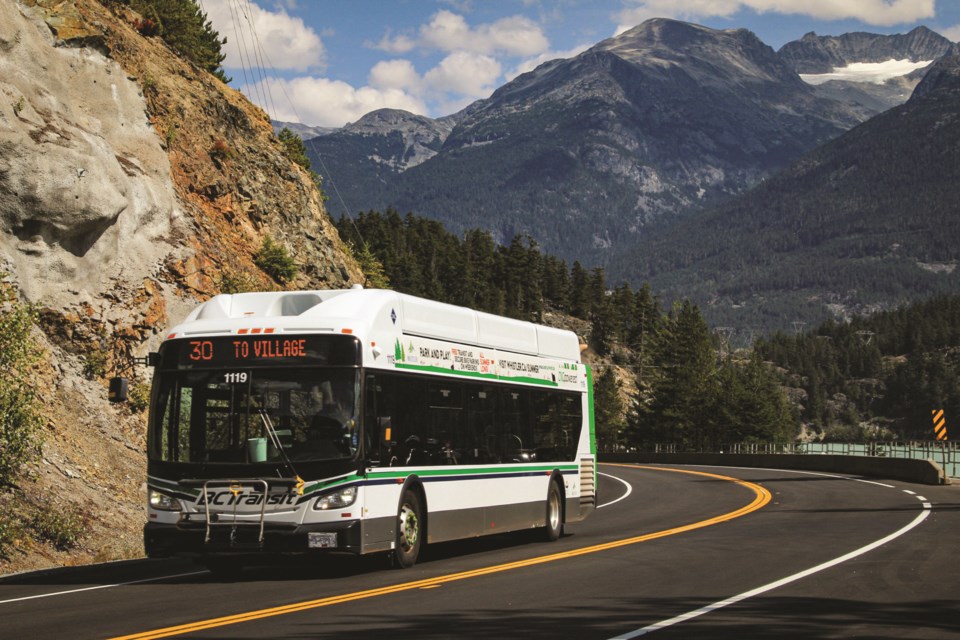Due to a multitude of factors, transit fares in Whistler are expected to fall well below amounts budgeted for 2021.
On Dec. 7, council heard that budgeted amounts are off by up to $900,000 for the year.
“Some of this has to do with a shortened ski season following the early closure of Whistler Blackcomb; some of this has to do with a shift in tourist visitation into the summer, and specifically summer weekends when transit is fare-free,” said director of finance Carlee Price in a report to council.
“Some of this has to do with a generally slower post-pandemic economic recovery outside of the peak summer months. In any case, the expected fares shortfall in combination with higher expenses for existing service results in higher net costs for the transit program in 2021 than were original contemplated in the budget.”
The increase in expenses is related to higher maintenance costs on older vehicles and smaller savings on newer vehicles than initially expected, Price said, noting that costs for parts and shipping are also having a “visible effect” on expenses.
The shortfall must be made up from either an increased drawdown on the Whistler Transit System Local Transit Reserve or the RMOW’s general operating reserve, Price said.
But given the pressure already placed on the general operating reserve, Price recommended drawing the $900,000 from the transit reserve.
Council did just that, giving first three readings to a related budget amendment bylaw at the Dec. 7 meeting.
The transit reserve is held by BC Transit and created through the COVID-19 Safe Restart fund, with grant money provided by the federal and provincial governments.
Communities have been given a fixed amount of funding from 2020 to 2024 to be able to continue providing reliable transportation services during the pandemic—in the RMOW’s case, $3.6 million.
The downside of drawing from the reserve to make up the shortfall is that $2.1 million will have been spent by the end of 2021, Price said.
“Should pandemic effects continue to linger, should the recovery continue to be intermittent and visitation to shift into periods that are less helpful to fares revenue, the absence in this funding in future years may be problematic,” she said.
“That specific risk feels manageable and the new multi-year drawdown plan satisfying for most potential outcome scenarios.”
Meanwhile, Whistler’s full winter transit service returns to the resort on Dec. 18, and will run until April 3.
Winter scheduling includes additional service on several routes, including: 4 Marketplace shuttle; 5 Upper Village/Benchlands; 6 Tapley’s/Blueberry; 20/20x Cheakamus; 21 Spring Creek; 32 Alpine; and 32 Emerald.
For more information on bus schedules, head to bctransit.com/whistler.




